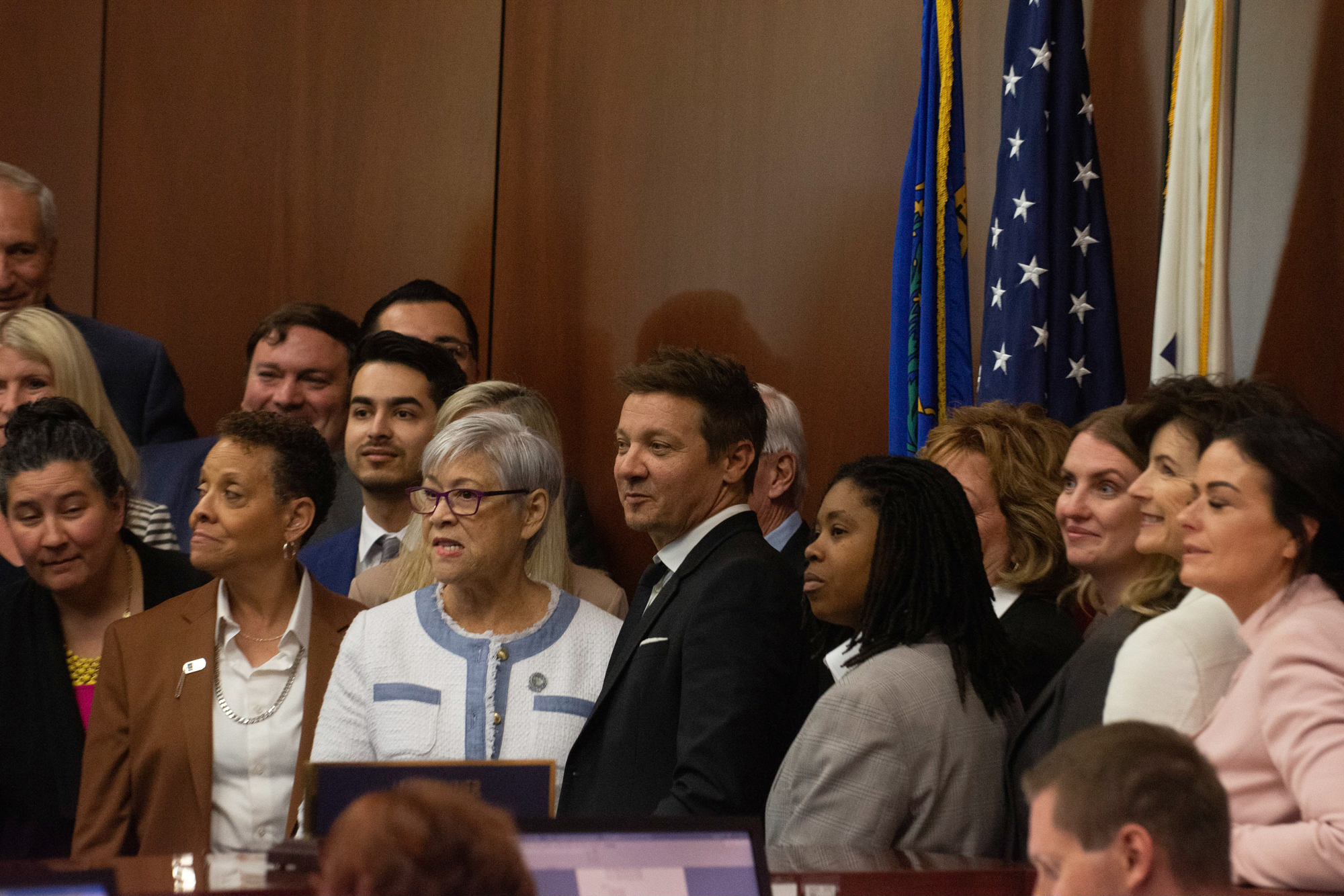Despite the cheerleading of Hollywood studios and corporate lobbyists, economists on the left and the right are highly critical of claims that film tax credits deliver massive economic benefits.
Such skepticism among economists is easy to explain. It’s largely the same reason epidemiologists are opposed to bloodletting as a way to cure the sick. Or as economist J.C. Bradbury put it on X, “Economists have ‘largely downplayed’ the economic benefits of film tax credits like astronomers have ‘largely downplayed’ horoscopes.”
It’s because real world data shows such tax credit schemes don’t work.
Unfortunately, “real world data” isn’t usually used to promote economic development schemes of this sort. Instead, cheerleaders, industry insiders and lobbyists trot out grandiose economic projections and insist that, somehow, things will be different than other jurisdictions where similar handouts have been tried.
And the current effort to bring Hollywood to the Mojave is no different.
Last week, an economic impact report prepared for Warner Bros. Discovery was released touting the supposed financial windfall Nevada could expect if lawmakers agree to massively expand the state’s film tax credit program by nearly 900 percent. Predicting 16,000 new high-wage jobs and a $13.5 billion increase to Nevada’s gross state product during the course of the next 15 years, the report was bursting with numbers sure to make any politician swoon.
Of course, it was prepared specifically for one of the primary corporations that would profit off expanding the state’s film tax credit — so there’s probably a little room for skepticism. After all, the report isn’t really intended to be an impartial and data-driven economic analysis. Instead, it’s a sales pitch designed to convince lawmakers that handing over the keys to the public treasury is “worth it” for the common good of the state.
But is it?
On the face of it, blindly trusting the lofty predictions of a corporate entity that’s actively lobbying for a handout is like trusting an email from some supposed “Nigerian Prince” who offers to share his fortune. Economic experts have long argued such programs are not a wise investment of otherwise scarce public resources — and recent reports on some of the largest film tax credit programs across the nation indicate very little has changed over the years.
A comprehensive study published in 2016 looked at film “incentive programs” in more than 40 states during a 15-year period, and found only marginal or temporary economic gains in extremely limited circumstances. Most types of tax credit policies resulted in no discernible impact to metrics such as wage growth or gross state product, according to the study.
And more recent studies — done by private institutions and even by governments themselves — demonstrate similar results.
In New York, the Film Production Tax Credit is the state’s largest ongoing business tax incentive, offering more than $7.5 billion in handouts to the entertainment industry during the next decade. However, even the state’s own Department of Taxation and Finance has been forced to admit the billions of dollars it has handed out thus far has done little to actually improve the state’s overall economy.
According to a report released last year by the department, the state only generated 15 cents in direct tax revenue for every dollar it doled out to an entertainment company in the form of a tax break. The department further explained that much of the industry’s economic activity “would occur in [New York State] regardless of the credits.”
Effectively breaking even on a multibillion dollar “investment” is a terribly inefficient use of taxpayer funds — but at least New York is breaking even. Georgia, for example, has not been doing as well, despite having one of the most aggressive tax “incentive” structures in the nation.
Certainly, Georgia’s approach has attracted plenty of major productions from the entertainment industry — including The Hunger Games, the Marvel movies, The Walking Dead and countless other movies, shows and streaming series.
But how well has Georgia’s film tax credits worked out for the state economy? Well, according to a 2023 audit conducted by Georgia State University’s Fiscal Research Center, not well.
According to the audit, the credits in the Peach State actually had a negative impact on net job creation for the state overall. Even worse for Georgia taxpayers was the audit’s revelation that the few entertainment jobs that were created cost taxpayers a pretty penny — roughly $160,000 per position as reported by Reason.com.
That’s not “economic development”; that should be considered economic malpractice.
Nonetheless, politicians in Georgia don’t seem too concerned, having rejected a bill earlier this year that would have limited the credits to 2.5 percent of the state budget. Apparently, luring Hollywood producers away from California is more important to electeds in the Peach State (and elsewhere) than being careful stewards of public dollars — the economics of it all be damned.
Undoubtedly, similar attitudes exist here in Nevada. However, that doesn’t change the fact that, at best, such incentive programs are marginally positive photo-ops for lawmakers and Hollywood studio heads. At worst, they are money pits that funnel tax dollars away from critical public services into the private pockets of corporations that already post billions of dollars in annual revenue each year.
No wonder economists from all along the political spectrum generally advise against such cronyism, regardless of how much economic growth industry insiders promise to create. It’s the same reason financial advisers generally discourage their clients from investing in pyramid schemes, regardless of how lucrative the client has been told it will be.
Michael Schaus is a communications and branding expert based in Las Vegas, Nevada, and founder of Schaus Creative LLC — an agency dedicated to helping organizations, businesses and activists tell their story and motivate change. He has more than a decade of experience in public affairs commentary, having worked as a news director, columnist, political humorist, and most recently as the director of communications for a public policy think tank. Follow him at SchausCreative.com or on Twitter at @schausmichael.

